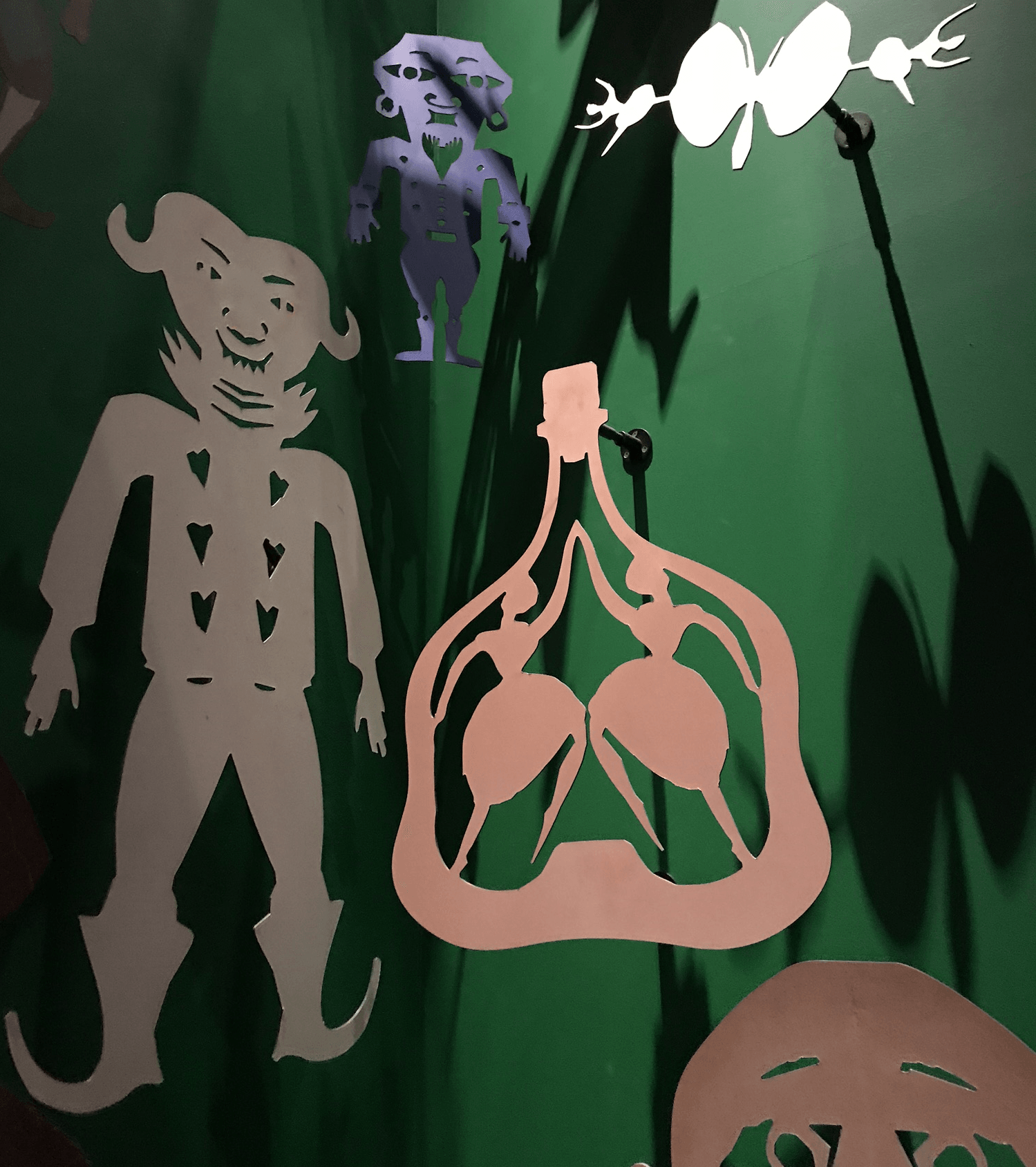The Wisdom of Wishes

If you were granted three wishes, how do you think you would use them? Perhaps you would wish for a long, life, or for happiness for your family. Perhaps you might even wish to win the lottery. It is such a tantalizing thought isn’t it? Which is why of course the idea of granting wishes has appeared in the folklore worldwide for centuries.
I have just returned from Denmark where I spent some time in Odense, the birthplace of Hans Christian Anderson who wrote hundreds of fairy tales many of which you may be familiar such as 'The Emperor's New Clothes', 'The Little Mermaid' and 'The Ugly Duckling'
One of H.C. Anderson’s best known stories, which I remember vividly from my childhood, is The Tinderbox ; a rather dark tale about an ambitious and ruthless soldier who obtains, through rather nefarious means, an old tinder box which can grant him wishes through the vehicle of three enormous dogs.
The soldier first uses his wish to obtain for riches, his second to gain access to a beautiful princess, and his third to become ruler of his country. It is hardly a moral tale and one can only wonder at what kind of ruler he would have made.
In many countries such as Sweden and France, a similar appears featuring a quarrelsome couple and a comic twist. In this tale, one of the couple mistakenly use their first wish on a sausage for supper, and infuriated by the others’ stupidity their spouse wishes the sausage to attach itself to the guilty party’s nose. And then, of course, they have to use the final precious wish to restore their beloved to their previous state – leaving them no better off than before they were granted three wishes. In England the tale is called the Woodman’s three wishes.
There are two common themes in all of these tales. The first is that the wish is granted by a supernatural power – usually a fairy - although in the Arabian folktales One Thousand and One Nights, the wish is granted by Allah. The second is that of mankind’s inability to use the power of wishes wisely, because of the very human sins of pride and avarice.
These themes are also reflected in the life of the biblical character Solomon. In 1 Kings chapters 2 and 3, King David had passed away and has handed on the mantle of ruler to his son Solomon. David had instructed Solomon well but it still the early days of his reign and the young Solomon has no idea what the future may bring.
But one night in Gibeon, God appears to him in a dream and says to him ‘Ask for whatever you want me to give to you.’ It is Solomon’s version of the three wishes.
Perhaps the most natural thing in the world for Solomon to have done would have been to ask for a long, successful and prosperous reign over his people; a reign of majesty, power and might. Or he might have asked for peace, or the power of conquest over Israel’s many enemies.
But Solomon asked for none of this. Instead he said ‘Give thy servant therefore an understanding mind to govern thy people, that I may discern between good and evil; for who is able to govern this thy great people?”
Solomon didn’t ask for riches or power, but instead he showed uncommon humility in this recognition of his own limitations, Rather than grasping for power, he acknowledged his very inability to control the power given to him – saying ‘I am like a little child, I do not know how to go out or come in.’
Instead, Solomon asks for an understanding mind and the he ability to discern between good and evil – and of course his ability to do this became legendary.
Many of us will have grown up on the story of the two women who came to Solomon claiming that a child was theirs, asking him to adjudicate. Both woman were adamant and would not back down so Solomon ordered that the child be cut in half and divided between the women, at which point of course the real mother stood forward and gives the child up so that it may live. Wise Solomon then restores the babe to its real mother. Never mind fairy tales, the Bible has all the best stories.
So how did God respond to Solomon? Well in 1 Kings 3 we are told that God was delighted with Solomon’s request – not only because he showed humility and good sense, but because of the profound nature of Solomon’s ‘wish’.
In some translations the word used to describe Solomon’s request in today’s reading from 1 Kings is translated as wisdom. And is word wisdom describes something more than just an understanding heart.
Wisdom is one of the intangible qualities of God. In Job, we are told, To God belong wisdom and power; counsel and understanding are His.’ (12.13).Wisdom is one of the characteristics of our creator, the Alpha and the Omega.
Moreover in 1 Cor 1:30 we are told, that Jesus Christ, ‘being the very substance of God, ‘has become for us wisdom from God – that is our righteousness, holiness and redemption.’
So what Solomon was asking for was not just a high IQ, but a communion with God so intimate that he might take on his character, and with a renewed mind to be able to discern clearly the will of God.
This is the kind of communion that is also described so powerfully by Jesus in John’s gospel chapter 6 which he likens himself to the bread of life. And says ‘ He who eats my flesh and drinks my blood abides in me, and I in him.’ (56)
What both these passages are describing is an intimate and mystical communion with God, in which we share in his very nature, so that when we look at the world we do so with the compassion, wisdom and love of God.
And God is so pleased with Solomon’s desire to be close to him, he says that a since he asked for wisdom, and not for long life or wealth for himself, nor for the death of his enemies – he would not only do what he asked but would also grant him those unspoken wishes – of wealth, honour and a long life.
We cannot all be Kings, and not all of us will have wealth, honour or even a long life. But we too can ask for God’s wisdom, to abide in him and he is us, to be able to see this world we live in through his eyes of love. And when we come to the Lord, with wishes in our hearts, we need to remember Solomon’s words in proverbs; ‘How much better to get wisdom than gold’ (16.16).
Kate Nicholas is a Christian author, broadcaster and preacher. Her best-selling memoir Sea Changed and its Companion Guide – Living a Transformed Life are available in Christian book stores and Waterstones throughout the UK. Here TV series Living a Transformed Life can be seen on premiere Christian channel TBN UK (Freeview 65 and Sky 582) at 9.00 p.m. GMT on Sundays with repeats on Mondays at 11.30 a.m, Wednesdays at 3.00 p.m. and Sundays at 2.00 a.m. and is free on demand at www.tbnuk.org.
